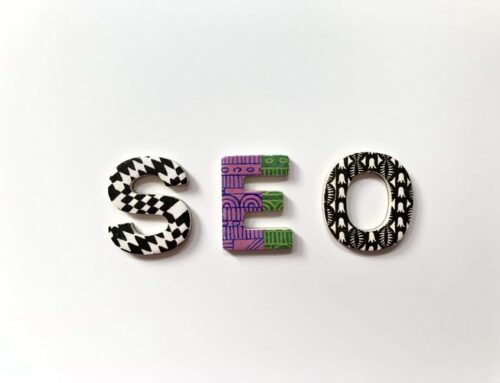You should be able to depend on your SEO company to help educate you about the basics of SEO. In this blog I’ll take you behind the scenes and show you how I get a campaign started and the topics I discuss with customers. Lots of SEO companies teach their clients about SEO; it’s a great idea because an informed client can help move the campaign forward. I like offering as much knowledge as the client wants, and then I let them know that I am always available as a resource. So let’s dive in!
Intrigued to write a blog on this topic as I spend a fair amount of time on kickoff calls with clients explaining about it. One of my favorite parts of being a digital marketer – the hope that is wrapped up in every kick off call! I can feel the energy in the air as the client is looking forward to getting the campaign started. It’s a great feeling for everyone because as a marketer I want to live up to all this positive energy at the onset of the campaign. It all starts with one activity that may seem kind of boring, but influences every part of the campaign: key phrase research.
Over a decade and a half ago when I started as a digital marketer with my first SEO company, I had a terrific mentor who taught me in one afternoon the mindset that’s required to do great keyword research. He said: ‘What we want to be found for is only half the battle. What people are already searching for is the piece that will help guide us in our research.’ He was quite right then and that approach still works today. If we sell red shoes we surely would like to rank on Google for that phrase. But what about all the people searching for red sneakers, red heels, red pumps, red flats, and all the other variations – we want to market to those people (provided, of course, that our red shoes fit those criteria). So we need to use a tool that allows us to feed in a few key phrase ideas. Then the tool provides us with recommendations for related phrases.
Our customers help guide us in this process. Some customers serve a national audience. Others want to dominate their local areas. So maybe one customer will have me research New York City or NYC red heels, NYC red pumps, etc. Or Chicago red heels, etc. You get the idea.
Again this is only part of what I need to do – there is another subset of key phrase research called long-tail key phrase research. This will allow me to find phrases that are a bit more descriptive and that have specific intent; like ‘NYC red flats with bows’. If I find any search volume for phrases like this, that correlate with what my customer sells (preferably, of course, products that are important to my customer’s business) then I focus on these. Some of these long-tail phrases may have low search volume, but again, they point to specific intent, and they can be high converting phrases (queries by people ready to buy).
Keeping all the above in mind, my next move is to provide a master key phrase list to my customer. Depending on the size of their business and their goals, this can consist of anywhere from 5 to several hundred key phrases. The customer will advise as to any phrases they wish to delete. They then will have me do additional research to see if we can find search volume (users making queries on Google) for any other phrases that they are interested in. Once this last step is completed, the customer approves the key phrase list.
All of this might sound a bit mundane and tedious but is a cornerstone of the SEO process. Key phrase list in hand, it’s time to go forth and optimize!
What to Do With Key Phrases: On Page Optimization
It might be best to explain first what I don’t want to do. The idea is not to place key phrases willy nilly throughout the page copy. I want the existing copy (and any additional copy I write for the site) to retain the same brand tone as it had before. The keyword additions should be judiciously added. They are signals to both human beings and search engines and they must be inserted in specific areas:
- In headlines and subheads
- In the first paragraph
- At least several more times throughout the page (3-4 times is sufficient for pages of about 300 words)
- In calls to action
In addition to on-page optimization, the HTML code for each page will need keyword additions. The HTML title and meta description should each have an incidence of the key phrase and it should be installed at the beginning.
You’ll notice that the HTML title and description are what show up in search results when people make queries at Google (or any search engine). The HTML title is the blue link that leads to your website. The description is the short explanation about why people should do business with you.
Off Page Optimization: Link Development, Social Media, Email
Key phrases also play a big part in optimizing off page content, too. I want people to associate the website I’m optimizing with these key phrases and I have to use several vehicles to alert people to the client’s site. I will build links to the site by submitting it to local directories and social bookmarking sites. I will create and manage social media accounts that I will use to engage with my client’s fans and customers. I’ll use email newsletters and messages to provide customized offers for my client’s subscribers. In all of these communication channels I will remember to use key phrases in headlines, subject lines, calls to action and copy. Again key phrases will be installed in a natural sounding way so that the user experience is always optimal and natural.
It Takes Time to Get All the Moving Parts Pointing in the Same Direction
It can take months to get all of the work described here completed, but that’s okay. Each day I advance the campaign further so over time I’m building value. I’m building online assets for my client. So whether I am optimizing a YouTube video’s title and description with keywords, or writing a blog post, or posting to Twitter, I am keeping in mind not only a focus on my client’s products and services, but also how I can use key phrases to motivate people to take action.
Want to know more about the basics of SEO? Get in touch with Organically. We are an award-winning SEO company that can produce a custom campaign for you that will lead customers to conversion.






 CERTIFIED EXPERT
CERTIFIED EXPERT